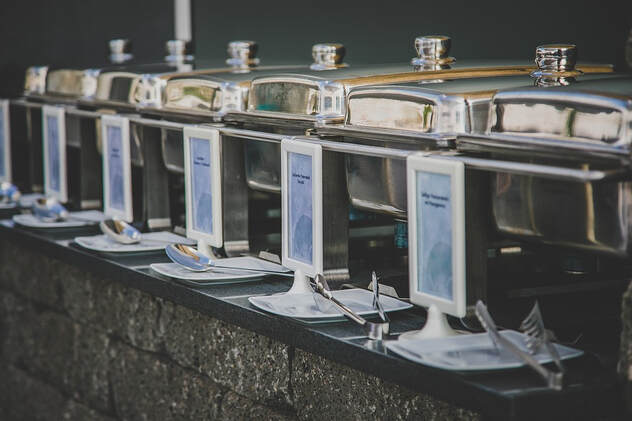|
Catering is a really important part of your program. Any camp, school excursion or overseas school trip needs to have good food, with considerations made for any dietary needs. This could be based upon allergies, religion or preference. The complexity of this can, at times, get a bit overwhelming. Some are justified, some are ridiculous and indulgent. The ongoing challenge is however, to ensure you push through the fact that some parents push stupid diets on their children and focus on the fact that getting the catering right for your critical needs students is vitally important. For most students, it’s fairly clear and obvious that they’re a vegetarian, they can’t eat nuts or seafood or whatever the case may be and you simply provide this information to your camp catering team to sort out. However, it’s important not to set and forget this, as things can always slip through the cracks and when they do… you can have some of the most dangerous situations on hand. On one program I was running, we were using a hardtop catered camp site for part of it. I walked in to have dinner and saw that it was a pasta dish with a tomato sauce. However, as I looked a bit closer, I saw some tiny prawns in it. I quickly looked around the room as this was not on the menu plan and one of our students was anaphylactic to shellfish. I spotted him down the back of the dining room, having just sat down to eat. I dashed down and immediately said not to eat the pasta. Despite being old enough to have some level or self-regulation, he hadn’t seen the prawns in the food. Thankfully, he hadn’t eaten anything and I arranged for another meal. It turned out that the cook had a bag of spare prawns in the freezer and just thought he’d use that to ‘bulk-up’ the dish. The potential consequences of this could have been fatal. Even if you’re really careful with food allergies, it’s important that someone is monitoring this and not just ticking that box before the program and thinking it will have sorted itself out. Another camp provider I was working with was completely dysfunctional and couldn’t understand dietary needs at all. This was obvious from the signs they had placed on the servery. ‘46 normal’. It wasn’t just the fact that they had odd signs, but then they hadn’t actually catered for any dietary needs at all, so the not-normal were given salad. I ended up having to go out at the last minute and buy some supplies because the caterers were so incompetent. Needless to say they were never used again. However, once again, if you don’t have someone actively monitoring this for your program, you can end up with all sorts of nightmares. Even in-house, if you’re employing people who are supposedly well-experienced in food preparation and catering for school groups, this is no guarantee that things will go well. Once place I was working the cook (really couldn’t!) kept sending out meals raw. Now a raw hamburger is one thing, but when you have raw chicken breasts coming out for dinner, it’s obvious they’ve got no idea and time to replace them. Whilst it’s often tempting for schools to contract out their camps to other people to organise and run for them, you’re still ultimately responsible for the health and safety of your students, so someone should be overseeing and observing meals, snacks and drinks throughout the day. In doing so, you can save yourself from far greater problems that can result from bad catering and a lack of attention to this part of your program. You don’t have to be over the top or hyper vigilant, but you do need to have your finger on the pulse as to what everyone is eating. If some of your providers can’t cater, or the level of complexity of students’ food needs is too great for you to adequately cater for them, its important to have this conversation with parents and find an alternate solution.
In my experience. if you have someone who needs a specific brand or exact item from a gourmet food store, then it’s probably best to document in your program information that some cases might require self-catering. I’ve had this both for extreme allergies and extreme parenting. The extreme parenting and ‘fussy eater’ scenario aside, if you have serious concerns about major food allergies and triggers, then just work with the parents to provide the food themselves. We’ve done this on many occasions and have also provided separate cooking equipment for those students to ensure there’s no cross-contamination. At times, this is a challenging part of running the program. It doesn’t have to be and putting those plans in place early, talking with parents and the students, as well as monitoring what’s being provided, will help ensure those catering nightmares are well and truly kept at bay.
0 Comments
Your comment will be posted after it is approved.
Leave a Reply. |
Categories
All
Archives
April 2021
|


 RSS Feed
RSS Feed